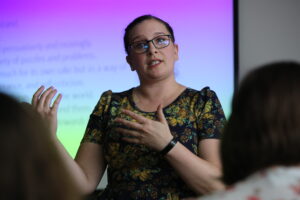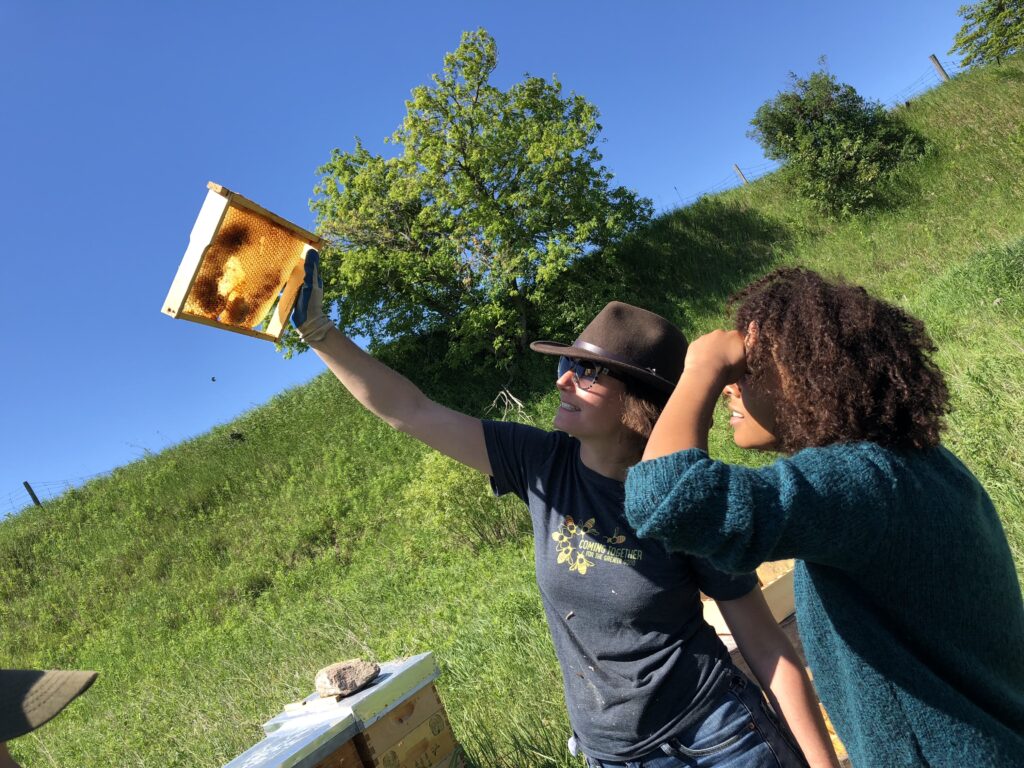Designing spaces for sustainable agriculture is just one spoke of the wheel in the wide-reaching topic of environmental science. Using campus as a huge outdoor study hall, students of every faculty member embrace ways to impact their own backyard, while learning how to take that experience out into the world.
 Since 2016, Professor Krone has been focused exclusively on a project studying the Jewish Community farming movement. It’s a network of 25 organizations in the US and Canada that are engaging in sustainable agriculture from a Jewish perspective.
Since 2016, Professor Krone has been focused exclusively on a project studying the Jewish Community farming movement. It’s a network of 25 organizations in the US and Canada that are engaging in sustainable agriculture from a Jewish perspective.
The importance of identity and culture connects students from all backgrounds to an understanding of the historical significance of reconnecting Jews to land. This includes their local food systems and understanding some of these ancient Jewish agricultural principles and ethical principles, especially in the time of environmental degradation in the climate.
 Krone’s instruction prompts students to think about the role of technology in animal agriculture and processing food and meat. These concepts are not purely esoteric, but have practical applications when thinking about issues of religion and humanities. Allegheny students learn how to consider these aspects of living when trying to understand conflicts across the globe, as land and heritage can often be drivers of major geopolitical events.
Krone’s instruction prompts students to think about the role of technology in animal agriculture and processing food and meat. These concepts are not purely esoteric, but have practical applications when thinking about issues of religion and humanities. Allegheny students learn how to consider these aspects of living when trying to understand conflicts across the globe, as land and heritage can often be drivers of major geopolitical events.
